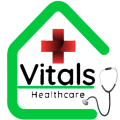Introduction
In today’s fast-paced healthcare environment, Doctors On Call services have emerged as a game-changer. These on-demand healthcare solutions allow hospitals and clinics to offer medical consultations outside the traditional setting, delivering convenience, speed, and flexibility. Whether you’re a healthcare administrator, clinic manager, or medical professional, understanding the benefits of these partnerships is essential to stay ahead.
What Are Doctors On Call Services?
Doctors On Call refers to healthcare professionals who offer medical consultations and treatments at a patient’s home, workplace, or remotely via telehealth platforms. These services are ideal for:
- Elderly patients with mobility challenges
- Post-operative care
- Minor illnesses that don’t require ER visits
- Remote or rural areas with limited access to healthcare
According to a report by Deloitte, virtual and at-home care is expected to grow by 30% annually through 2026.
Benefits of Partnering with Doctors On Call Providers
1. Enhanced Patient Experience
Partnering with Doctors On Call improves patient satisfaction by offering care on their terms—whether that’s at home or through virtual visits.
- Convenience: Patients can avoid waiting rooms.
- Comfort: Recover in the familiarity of home.
- Continuity: Get follow-up care with the same physician.
2. Reduced Hospital Readmissions
Hospitals often struggle with repeat visits, which can damage reputation and increase costs. Post-discharge monitoring through home visits helps mitigate this.
A study published in JAMA showed a 25% reduction in readmissions when post-discharge follow-up care was provided at home.
3. Operational Cost Savings
By outsourcing routine and non-emergency visits, hospitals can:
- Lower ER congestion
- Free up in-house staff
- Reduce inpatient stays for non-critical cases
Cost Comparison Table:
| Service Type | Avg. Cost per Visit | Notes |
|---|---|---|
| In-Hospital Consultation | $250–$400 | Requires infrastructure & staff |
| Emergency Room Visit | $700–$1,200 | High resource consumption |
| Doctor On Call Visit | $100–$250 | More efficient & scalable |
4. Scalable Healthcare Delivery
Doctors On Call allow hospitals to extend their reach into communities without building new branches. This is especially valuable in under-served areas.
5. Improved Staff Efficiency
Healthcare staff can focus on critical, high-value cases while routine care is delegated. It helps reduce burnout, a pressing issue in the industry.
Use Cases for Hospitals and Clinics
Emergency Backup
When ERs are full or understaffed, Doctors On Call providers can be deployed to handle non-critical cases.
Home-Based Rehabilitation
Useful for orthopedic and neurological patients who require regular monitoring and physiotherapy.
Elderly Care Programs
Aging populations benefit immensely from in-home visits for chronic care management.
How to Choose a Reliable Doctor On Call Provider
Look for these key features:
- Accredited medical professionals
- 24/7 availability
- Integration with EHR systems
- Telehealth capabilities
- Compliance with HIPAA and local regulations
Pro Tip: Request performance metrics from providers, such as patient recovery times, satisfaction scores, and response rates.
Integration Best Practices
1. API and EHR Integration
Ensure seamless data sharing between your clinic’s systems and the Doctors On Call platform.
2. Staff Training
Educate your front desk and care teams about the referral process and communication protocols.
3. Patient Communication
Update your website and patient materials to include information on the availability of at-home care.
Real-World Example
Dubai Health Authority (DHA) partnered with local telemedicine and on-call doctor platforms to reduce patient load in hospitals during COVID-19. This not only kept hospitals available for critical patients but also improved recovery rates at home.
Challenges to Consider
- Data security concerns with third-party platforms
- Regulatory compliance depending on your country or region
- Quality assurance—standardizing care outside of controlled environments
However, these challenges are manageable with the right protocols and partnerships.
Conclusion
Hospitals and clinics that embrace Doctors On Call services position themselves as future-ready institutions. The model not only addresses patient demand for convenience but also optimizes hospital operations and enhances care outcomes.
By partnering with reputable providers and integrating these services into their care models, healthcare facilities can stay competitive, compassionate, and cost-effective.
FAQS
What is a Doctor On Call service?
A Doctor On Call service provides medical consultations at home or via telehealth, eliminating the need for in-person visits to clinics or hospitals.
Are Doctors On Call qualified?
Yes, these services employ licensed and experienced physicians, often with specializations in internal medicine, general practice, or emergency care.
Can hospitals integrate Doctors On Call with their existing systems?
Absolutely. Many providers offer API and EHR integration for seamless data sharing and scheduling.
Is it safe to use on-call doctors?
Yes, as long as the provider follows proper medical protocols, uses secure systems, and hires certified professionals.
What conditions can be treated by Doctors On Call?
Common cold, flu, infections, minor injuries, chronic disease management, and post-operative care are commonly handled.


Pingback: Top Benefits of Home Nursing Care Services for the Elderly | Doctor on Call at Home